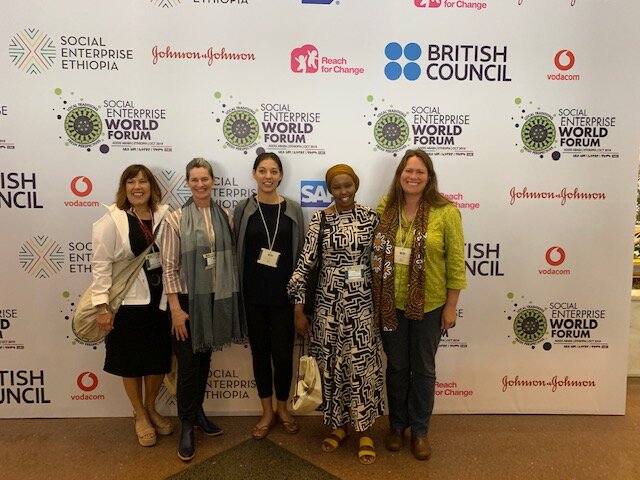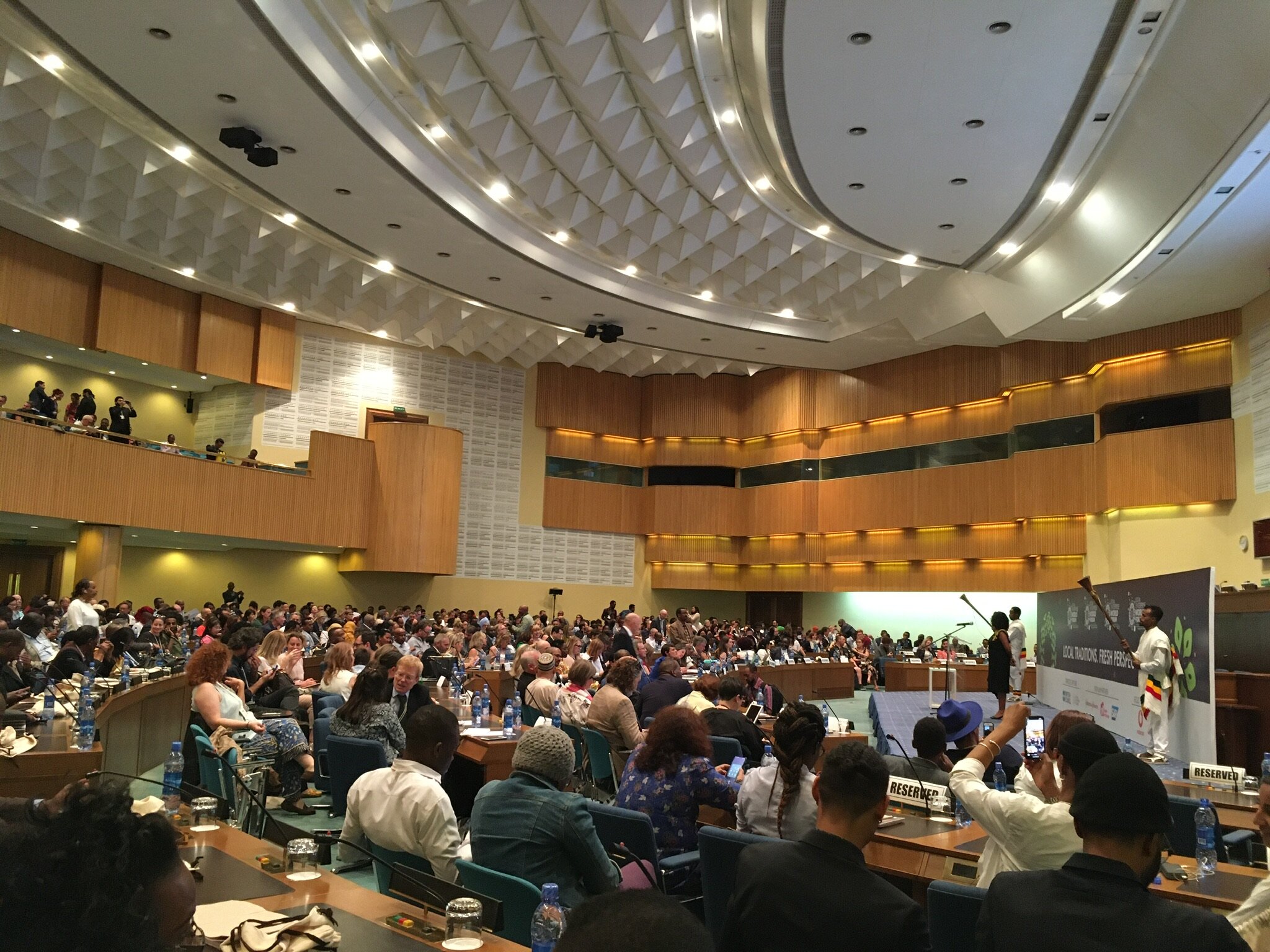Thanks to a grant from the British Council, our director Sado Jirde and colleague, Angelique Retief (who is completing her PhD on the role of social enterprise in reducing inequalities in South Africa), were given the fantastic opportunity to attend the Social Enterprise World Forum (SEWF) 2019 in Ethiopia. Alongside the University of Bristol, they were sponsored by the Festival of the Future City Social Innovation Grant. Funded by the British Council, the focus of this is to help facilitate international collaboration among cities by testing the impact of international sharing and experience on individuals and micro-organisations who would normally not have the opportunity to work internationally.
We expected an event which was based on western-centric ideas, but what was delivered was so completely driven by the people of Africa and yet global in nature. Perhaps some of the greatest things we learned were that:
1) The ambition in Africa is to change the lives of billions not thousands and this is reflected in social enterprise as a global movement which is around ‘BIG thinking’ and change. Emma-Kate Rose from Food Connect, when asked how she succeeded, responded with, “I don’t feel we did because we haven’t changed the entire food system yet”.
2) Social enterprise in Africa is exemplary of the fact that learning is not exclusively ‘North to South’. This is an area in which ‘western’ countries are not necessarily leading the way but in which the flows of information, innovation and learning is a two-way street. There is amazing work happening around the world!
3) Investors expect enterprises in the ‘South’ to be social and thus that there is an expectation of grant funding, but we learned that this could not be further from the truth. Entrepreneurs expect the model to be paid for via the purchasing of the product or service they sell – just like any other business.
4) Tech in Africa is central to scaling and improving impact and access.
5) In South Africa, the absence of government structures has enabled the sector while in Scotland, government intervention has enabled the sector. This leaves questions around the role of government, but these sorts of questions are context specific.
We left the forum convinced that social enterprise as a movement is the answer. Change is not an event but a ripple effect. The question is, how do you measure that? GDP as a flawed measure of growth and instead we need a different way of measuring wellbeing. The current system of global capitalism and neoliberalism has failed, and charity relies on kindness but unfortunately kindness is not equally distributed. Social enterprises are tackling the race to the bottom but how do we maintain the benefits of capitalism while changing the system to ensure sustainability, responsibility and equality? As Harish Hande of Selco Foundation said, quoting Gandhi, “There is enough in the world for everyone’s needs, but not for everyone’s greed”.
Three states in the US have 50% of global venture capital with 15% of this being female-led and only 1% being BAME-led. Inclusivity needs to be more deliberate, not just in language but in targeted funding. Unfortunately, money is power. One of our most recent research projects in Bristol, UK, found that it is not just about supporting the business, it is also about supporting the individual, and “righteous entrepreneurship with a focus on the liberation of the receiver rather than the redemption of the giver (Mike Curtin of DC Central Kitchen)” is crucial in this. What we need is meaningful learning without the distortion of indigenous culture. The British Council strive for the building of international links and sharing social innovation in our cities, their aim being to find sustainable solutions for the future of business and our planet. Listening to the stories of social entrepreneurs from around the world addressing some of the globe’s most challenging problems gives us hope for the future.
The British Council’s work around trust, friendship, and understanding between people and organisations, and between the UK and the countries in which they work, was most visible at the social enterprise world forum. It provides an unparalleled opportunity to meet some of the globe’s most fantastic social entrepreneurs, who are working tirelessly to improve the quality of life of their populations and are tackling some of the world’s most wicked issues while sharing good practices from their social innovation work.
On our last evening there, we sat around a traditional coffee stall talking about a revolution (to quote Tracy Chapman!). What we realised during this discussion is that this revolution is already happening, whether through corporate social responsibility, social enterprise or social impact investing. The SEWF 2019’s closing excerpt was, “Social enterprise is our way to go as a nation” but it was clear to us that social enterprise is our way to go as a globe.



